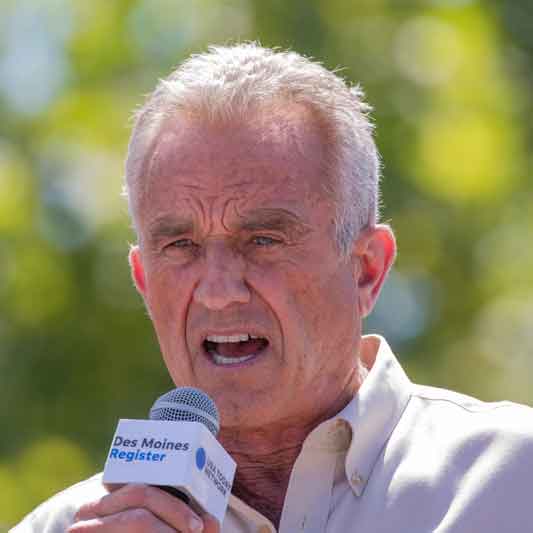Health and Human Services Secretary Robert F. Kennedy Jr. has canceled approximately $500 million in federal funding for mRNA vaccine research and development, terminating 22 contracts and sparking widespread criticism from public health experts and scientists across the country.
The Department of Health and Human Services announced the coordinated wind-down of federally funded mRNA vaccine development on August 6. Kennedy claimed that mRNA vaccines fail to protect effectively against upper respiratory infections like COVID and flu, stating the data shows these vaccines are ineffective against mutating viruses.
Dr. Michael Osterholm, Director of the Center for Infectious Disease Research and Policy at the University of Minnesota, described the decision as “the most dangerous public health decision” he has seen in over 50 years of public health work. Osterholm has served seven different presidential administrations and been through several pandemics.
The funding cuts affect major pharmaceutical companies and research institutions. Moderna, which received $176 million last year and an additional $590 million earlier this year to develop an mRNA-based bird flu vaccine, saw its contract canceled. Other affected organizations include Pfizer, Sanofi Pasteur, CSL Seqirus, Emory University, and Tiba Biotech.
Scientists argue that Kennedy’s characterization of mRNA vaccines as ineffective misrepresents their purpose and success rate. Dr. Paul Offit, director of the Vaccine Education Center at Children’s Hospital of Philadelphia, emphasized that COVID vaccines were designed to keep people out of hospitals, intensive care units, and morgues rather than completely prevent infection.
The technology played a crucial role during the COVID-19 pandemic, enabling vaccine development within nine months of pathogen identification. Jeff Coller, a professor of RNA biology and therapeutics at Johns Hopkins University, noted this timeframe was unprecedented in human history and was only possible because of mRNA technology.
Beyond infectious diseases, mRNA technology shows significant promise in cancer treatment. Memorial Sloan Kettering researchers are developing an mRNA vaccine for pancreatic cancer, and the Medical University of South Carolina is using the technology to fight melanoma and lung cancer. Recent studies have shown mRNA medicines’ effectiveness against several cancers, including those of the pancreas, colon, and brain.
The cuts particularly impact pandemic preparedness capabilities. Researchers warn that traditional vaccine development methods would require five to six years during a pandemic before producing an effective vaccine, potentially costing millions of lives. mRNA technology’s flexibility allows scientists to respond more quickly to viral outbreaks, including potential threats like avian influenza.
In South Carolina, Moderna operates more than 10 sites, with eight locations in the Charleston area researching and testing mRNA-based medicines. James Chappell, president and CEO of SCBio, expressed concerns that the funding cuts could delay treatments and cost lives, noting that federal government funding has historically been the biggest driver of early-stage research.
The decision represents a significant policy shift from the first Trump administration, which created Operation Warp Speed to develop, manufacture, and distribute COVID vaccines rapidly. Scientists worry the move could leave American medicine lagging behind China and other countries that previously sought access to the same technology.
Kennedy’s vaccine skepticism extends beyond mRNA technology. He previously chaired Children’s Health Defense, an anti-vaccine advocacy group, until 2023. During his confirmation process, he made controversial statements about vaccine safety and efficacy, though he later denied some of these remarks during congressional hearings.
Investment implications extend beyond government funding. Otello Stampacchia, managing director at life sciences investment firm Omega Funds, noted that the administration’s messaging has a broad impact on private investment, making it challenging for firms to invest in areas facing political opposition.
More than 750 HHS staff members recently sent a letter to Kennedy asking him to stop spreading misinformation about vaccines. Some organizations have called for Kennedy’s impeachment, though the feasibility of such action remains unclear.
Senator Bill Cassidy, who chairs the Senate Health Committee and is also a physician, previously stated he would use his authority to rebuff attempts to remove public access to life-saving vaccines without ironclad scientific evidence accepted by the mainstream scientific community and Congress.

